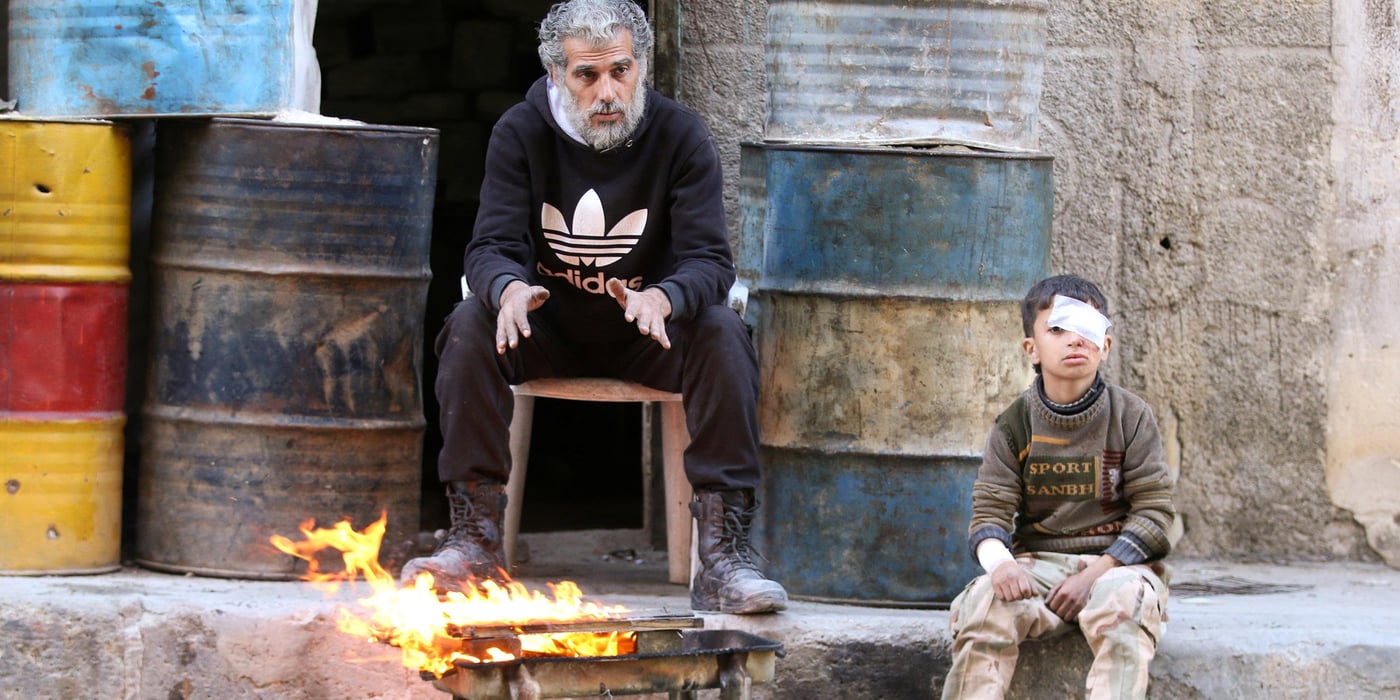
“This winter will be a killer for thousands of families lacking the basic protection of a roof over their heads,” warned Thomas White, Syria Response Director for the Norwegian Refugee Council (NRC).
Tens of thousands of people have fled Eastern Aleppo city in the past weeks, seeking safety and protection. However, their new reality could be bleak if they aren’t properly equipped for winter, as temperatures will dip as low as -5 degrees Celsius at night in the coming days. There is also a race against time to ensure the safe evacuation of people who wish to leave and are still trapped inside Eastern Aleppo city; their fate remains uncertain.
“For the people of Aleppo it is now vital that humanitarians get sustained access to ensure lifesaving assistance for those in desperate need now and over the next few months of winter,” said White.
“We spoke to a man who escaped Aleppo with his whole family last week,” said White. “They only managed to bring a few clothes with them, nothing else. They believed they were lucky to have crossed the frontlines with their lives, and didn’t consider what they would face once they were away from the fighting.”
“We are working around the clock to ensure that once people escape fighting that we do everything possible to help them brace for winter. This includes providing families with shelter, heaters and blankets,” continued White.
He also stressed the need for education activities for children who have been able to escape the fighting in Aleppo.
“These children urgently need our attention. They need a place where they can feel safe and be children again. We are now setting up emergency education programmes, focusing on psychosocial support and recreational activities,” said White.
NRC will provide thousands of children who have recently fled fighting in Aleppo with emergency education, and is also providing education activities and rehabilitating schools in other parts of the country.
In communities around Damascus, 13 schools have recently been rehabilitated, and 19 others are being repaired. Doors and windows of schools have been badly damaged in the conflict, leaving children and teachers exposed to dire conditions. Classrooms also lack basic heating and electricity for lighting.
“In some communities we see children going to school without proper winter clothing, and reaching school by walking under the coat or a blanket of their parents or grandparents.”
- NRC and local humanitarian partners are providing tents to the recently displaced families in the Aleppo region. So far about 1,500 people have been provided with tents, and NRC and local partners are working around the clock to provide more families with shelter.
- NRC is ensuring clean water and waste removal in camps in the Aleppo Governorate, currently housing 29,000 people, and we are scaling up to meet the additional needs of the newly displaced.
- NRC will provide emergency education for more than 5,000 children who have recently fled recent fighting in Aleppo. The education activities will focus on psychosocial support and recreational activities for the children. We will construct 14 large classroom tents specifically for these education activities.
- NRC is also scaling up winterisation assistance to vulnerable families and individuals in other parts of Syria. So far we have reached 13,585 people with winterization items (blankets, mattresses, winter clothes) in rural Damascus and we are planning to support at least an additional 72,000 people over the next few weeks.
- In the north of Syria NRC is also distributing blankets and kerosene heaters and constructing kerosene storage tanks for vulnerable families fleeing fighting with ISIS.
- 13 schools in several areas of Rural Damascus have been rehabilitated, and NRC is at the moment working to rehabilitate another 19 schools. Many schools have been severely damaged by the conflict and are lacking doors and windows, leaving children and teachers in classrooms in dire conditions, especially now that winter has started.
- So far this year, NRC has provided support to more than 600,000 people inside Syria.


